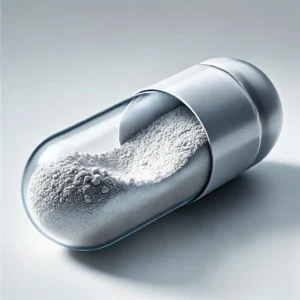
The 5 Proven Health Benefits of Omega-3 Fish Oil Supplements
- Read time for this section: ~ 2 mins.
- Known for its anti-inflammatory properties.
- Great at reducing triglyceride levels.
- Commonly taken for brain & heart health.
- DHA & EPA are best taken together for synergistic effect.
- Common ratios DHA: EPA (1:1 / 1:2 / 2:1).
- For Alzheimer’s disease prevention & mental benefits – DHA:EPA (1:1 or 2:1).
- For cardiovascular & general health – DHA:EPA (1:2).
- Effective dosage: ~0.5 to 3.0g/day (combined EPA & DHA)
- Example: DHA:EPA (1:1)
DHA:EPA (300mg:300mg)
Combined = 600mg - Most fish oils contain other omega-3 fatty acids besides DHA & EPA,
hence combined EPA & DHA could be 600mg, but total omega-3s
could be 900mg. - No difference found between fish & krill oil.
Not all fish oil are created equal.
Vegan formula can cost twice as much.
- Example:
$20 for 60 fish oil soft gels. Taking 2 soft gels twice daily will last 30 days.
Assuming minimum effective dose is met (~0.5g EPA+DHA).
- Fatty fish such as salmon, mackerel, sardines, tuna, and trout.
- Plant-based sources include flaxseeds & flaxseed oil, chia seeds, hemp seeds, walnuts & algal oil.
- Plant-based sources provide omega-3s in the form of ALA (alpha-linolenic acid).
- ALA can be converted to EPA & DHA in the body, but the process is not very efficient.
- Consult your doctor if you’re on blood-thinning medications, as fish oil can increase bleeding risk.
- Choose high-quality fish oil to avoid harmful contaminants like mercury.
The 5 Proven Health Benefits of Omega-3 Fish Oil Supplements
What is Fish Oil?
Fish oil is a nutrient-rich supplement extracted from the tissues of fatty fish like salmon, mackerel, and sardines. It’s prized for its high content of omega-3 fatty acids, particularly EPA (eicosapentaenoic acid) and DHA (docosahexaenoic acid). These essential fats play crucial roles in our body, supporting heart health, brain function, and reducing inflammation. While primarily known for its cardiovascular benefits, fish oil has also been studied for its potential positive effects on mental health, joint health, and overall well-being.
Health Benefits
1. Cardiovascular Health
Fish oil has been shown to have significant benefits for cardiovascular health. According to Siscovick et al. (2017), omega-3 PUFAs can reduce the risk of coronary heart disease (CHD) and sudden cardiac death (SCD). Studies have demonstrated that EPA and DHA supplementation can improve lipid profiles by reducing triglyceride levels and increasing high-density lipoprotein (HDL) cholesterol levels (Siscovick et al., 2017). Moreover, fish oil can reduce inflammation, which is a critical factor in cardiovascular disease (Zhu et al., 2014).
In a systematic review and meta-analysis, Chu et al. (2021) found that fish oil supplementation significantly reduced arterial stiffness, particularly in younger individuals and in short-term use. This effect was more pronounced with a low DHA/EPA ratio, indicating specific benefits depending on the ratio of these fatty acids (Chu et al., 2021).
2. Mental Health
DHA is a major structural component of the brain and retina, making it crucial for cognitive function and visual health. Research by Zhang et al. (2017) indicates that DHA and EPA can protect neuronal cells from toxicity, potentially offering benefits for conditions like Alzheimer’s disease. High DHA fish oil has also been shown to improve mood states and cognitive function, which is particularly beneficial for athletes and individuals under high stress (Lewis et al., 2020).
Ghasemi Fard et al. (2019) conducted a systematic review of high DHA fish oil studies, finding mixed evidence regarding its role in brain function and cognitive health. While some studies reported improvements in memory function and verbal fluency with high DHA supplementation, others found no significant effects on cognitive performance. The review noted that DHA might increase cerebral blood flow during cognitive tasks, potentially benefiting brain function indirectly (Ghasemi Fard et al., 2019).
3. Inflammatory Conditions
Fish oil has good anti-inflammatory properties, making it beneficial for managing conditions like rheumatoid arthritis (RA) and osteoarthritis (OA). According to Senftleber et al. (2017), marine oil supplements, including fish and krill oil, have been shown to reduce pain and improve physical function in patients with RA, not so much for OA, although more research is needed. The anti-inflammatory effects of EPA and DHA may help to alleviate symptoms and improve the quality of life for individuals with these chronic conditions.
4. Lipids [total cholesterol, triglycerides, HDL (the good) & LDL (the bad)]
In a systematic review, Safaei, Bayat, and Mohajer (2024) demonstrated the significant benefits of fish oil supplementation in managing triglyceride levels and improving HDL cholesterol. The meta-analysis included randomized controlled trials, comparing the effects of fish oil and corn oil on serum lipid profiles. The findings revealed that fish oil supplementation notably reduced serum triglyceride levels and increased HDL levels, whereas corn oil did not produce significant changes. No significant improvements were observed in total cholesterol level and low-density lipoprotein (LDL) cholesterol level . Altogether, these results highlight the potential of omega-3 fatty acids, in improving lipid profiles and reducing cardiovascular risk (Safaei, Bayat, & Mohajer, 2024).
For individuals undergoing dialysis, managing lipid profiles is just as crucial. Zhu et al. (2014) conducted a meta-analysis that highlighted the benefits of fish oil supplementation in reducing triglyceride levels and improving HDL levels in dialysis patients. This is particularly important for reducing cardiovascular risk in this vulnerable population. Similar to the findings from the above study , they found that fish oil supplementation led to a significant reduction in serum triglycerides and a moderate increase in HDL, showcasing its potential in managing lipid abnormalities in dialysis patients (Zhu et al., 2014).
5. Athletic Performance and Recovery
Athletes can also benefit from fish oil supplementation. Lewis et al. (2020) reviewed the effects of fish oil on physical and mental performance in athletes. The findings suggested that fish oil could enhance recovery, reduce inflammation, and improve mood states. The anti-inflammatory properties of EPA and DHA help to mitigate exercise-induced inflammation, leading to faster recovery times and improved overall performance. Moreover, the cognitive benefits of DHA support mental clarity and focus, which are essential for peak athletic performance (Lewis et al., 2020).
Conclusion
Fish oil supplements offer numerous health benefits, particularly for cardiovascular, inflammatory conditions and mental health. Understanding the right dosages, DHA:EPA ratios, and consumer considerations can help you make informed decisions about incorporating fish oil into your diet. Always consult with a healthcare provider to determine the appropriate dosage and to ensure that the supplement fits your individual health needs.
Understanding DHA and EPA
DHA (docosahexaenoic acid) and EPA (eicosapentaenoic acid) are types of long-chain omega-3 fatty acids. DHA is essential for the development and function of the brain and eyes, while EPA is primarily known for its anti-inflammatory effects. Both DHA and EPA play crucial roles in maintaining cardiovascular health by reducing triglycerides, improving HDL-C levels, and decreasing the risk of CHD and SCD (Kim et al., 2020).
DHA and EPA are metabolized in the body to produce bioactive compounds that regulate inflammation, blood clotting, and other critical processes. The incorporation of DHA and EPA into cell membranes can alter membrane fluidity and receptor function, which is essential for maintaining cellular health and function.
Effective Dosage Ranges
Determining the right dosage of fish oil can vary based on individual health needs and conditions. The American Heart Association (AHA) recommends an intake of 1-2 servings of fatty fish per week, which is roughly equivalent to 500 mg/day of EPA and DHA combined for general health maintenance (Siscovick et al., 2017).
Clinical studies have used various dosages, typically ranging from 1.7 to 4.5 g/day of EPA and DHA combined. For instance, studies targeting the reduction of triglyceride levels and cardiovascular health improvement have employed doses within this range (Safaei et al., 2024; Senftleber et al., 2017). It’s important to consult with a healthcare provider to determine the appropriate dosage for your specific needs.
For cognitive health and inflammation, higher doses of DHA are often associated with improved cognitive function. However, it is difficult to draw conclusions now and results are only suggestive. Ghasemi Fard et al. (2019) reviewed studies with dosages ranging from 0.52 g/day to 6 g/day of DHA and found mixed results for cognitive function, with some studies showing potential benefits in certain populations, while others found no significant effects.
Ratios (DHA & EPA)
The ratio of DHA to EPA in fish oil supplements can significantly impact their effectiveness. The research indicates that different ratios may offer varying benefits. For example, a ratio of approximately 1:1 is common in many commercial fish oil supplements, while higher ratios, such as 6:1 in favor of DHA, have been used for cognitive and visual health benefits (Kim et al., 2020). Studies have shown that a higher DHA content may be more effective for neuroprotection and cognitive function, while a balanced ratio can be beneficial for overall cardiovascular health (Zhang et al., 2017).
Chu et al. (2021) found that low dosages (≤1.8g/day) and low DHA/EPA ratio (<1) was associated with significant reductions in arterial stiffness, particularly benefiting younger individuals and those using the supplement for short-term periods. This highlights the importance of considering the specific ratios in fish oil supplements to maximize their health benefits.
Considerations
When selecting a fish oil supplement, several factors should be considered to ensure you get a high-quality product:
- Purity: Look for supplements that are free from contaminants such as heavy metals, PCBs, and other toxins. High-quality fish oils will often be third-party tested for purity.
- Bioavailability: The form of fish oil (ethyl ester vs. triglyceride) can affect absorption rates. Triglyceride forms are generally considered to have better bioavailability.
- Potential Allergens: If you have allergies to fish or seafood, consult with a healthcare provider before starting fish oil supplements.
- Side Effects: Common side effects include gastrointestinal discomfort such as nausea, bloating, and a fishy aftertaste. High doses (>3 g/day) may increase the risk of bleeding, particularly in individuals on anticoagulant therapy (Senftleber et al., 2017).
- Sustainability: Consider the source of the fish oil. Sustainable fishing practices and environmentally friendly harvesting methods can help protect ocean ecosystems and ensure the long-term availability of omega-3 sources.
References
- Chu, Z., Wei, Y., Hao, Y., Wang, J., Huang, F., & Hou, M. (2021). Clinical effectiveness of fish oil on arterial stiffness: A systematic review and meta-analysis of randomized controlled trials. Nutrition, Metabolism and Cardiovascular Diseases, 31(5), 1339–1348. https://doi.org/10.1016/j.numecd.2020.12.033
- Ghasemi Fard, S., Wang, F., Sinclair, A. J., Elliott, G., & Turchini, G. M. (2019). How does high DHA fish oil affect health? A systematic review of evidence. Critical Reviews in Food Science and Nutrition, 59(11), 1684–1727. https://doi.org/10.1080/10408398.2018.1425978
- Kim, M. G., Yang, I., Lee, H. S., Lee, J.-Y., & Kim, K. (2020). Lipid-modifying effects of krill oil vs fish oil: A network meta-analysis. Nutrition Reviews, 78(9), 699–708. https://doi.org/10.1093/nutrit/nuz102
- Lewis, N. A., Daniels, D., Calder, P. C., Castell, L. M., & Pedlar, C. R. (2020). Are There Benefits from the Use of Fish Oil Supplements in Athletes? A Systematic Review. Advances in Nutrition, 11(5), 1300–1314. https://doi.org/10.1093/advances/nmaa050
- Safaei, P., Bayat, G., & Mohajer, A. (2024). Comparison of fish oil supplements and corn oil effects on serum lipid profile: A systematic review and meta-analysis of randomized controlled trials. Systematic Reviews, 13(1), 54. https://doi.org/10.1186/s13643-023-02426-8
- Senftleber, N. K., Nielsen, S. M., Andersen, J. R., Bliddal, H., Tarp, S., Lauritzen, L., Furst, D. E., Suarez-Almazor, M. E., Lyddiatt, A., & Christensen, R. (2017). Marine Oil Supplements for Arthritis Pain: A Systematic Review and Meta-Analysis of Randomized Trials. Nutrients, 9(1), Article 1. https://doi.org/10.3390/nu9010042
- Siscovick, D. S., Barringer, T. A., Fretts, A. M., Wu, J. H. Y., Lichtenstein, A. H., Costello, R. B., Kris-Etherton, P. M., Jacobson, T. A., Engler, M. B., Alger, H. M., Appel, L. J., & Mozaffarian, D. (2017). Omega-3 Polyunsaturated Fatty Acid (Fish Oil) Supplementation and the Prevention of Clinical Cardiovascular Disease. Circulation, 135(15), e867–e884. https://doi.org/10.1161/CIR.0000000000000482
- Zhang, Y.-P., Brown, R. E., Zhang, P.-C., Zhao, Y.-T., Ju, X.-H., & Song, C. (2018). DHA, EPA and their combination at various ratios differently modulated Aβ25-35-induced neurotoxicity in SH-SY5Y cells. Prostaglandins, Leukotrienes, and Essential Fatty Acids, 136, 85–94. https://doi.org/10.1016/j.plefa.2017.07.003
- Zhu, W., Dong, C., Du, H., Zhang, H., Chen, J., Hu, X., & Hu, F. (2014). Effects of fish oil on serum lipid profile in dialysis patients: A systematic review and meta-analysis of randomized controlled trials. Lipids in Health and Disease, 13(1), 127. https://doi.org/10.1186/1476-511X-13-127

